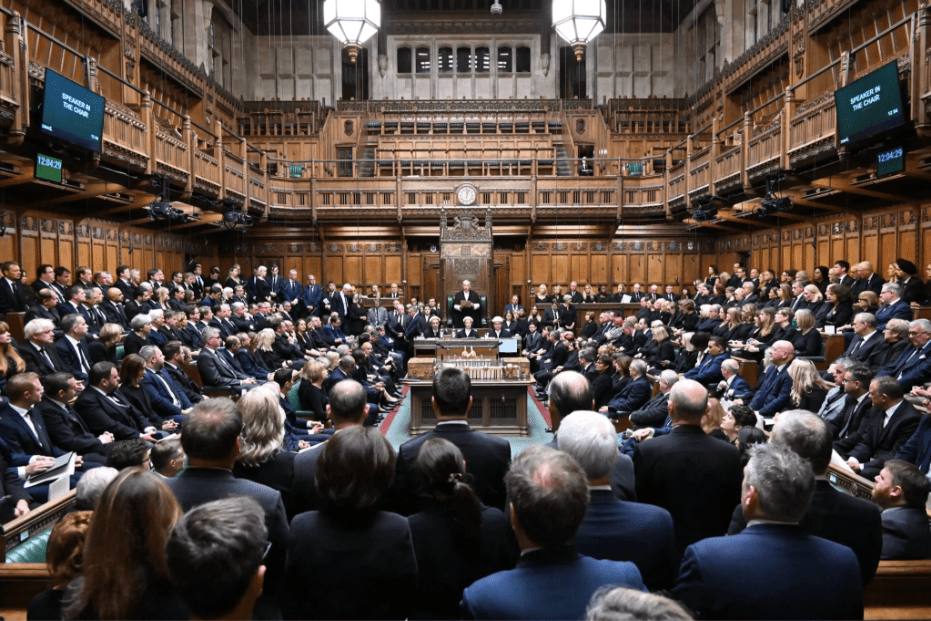The most damning bit of the lurid Mark Menzies case is that the Conservatives had been aware of the allegations for three months before they story broke this week – but only stripped him of the whip yesterday. It’s not a particular surprise, though: for years it has been clear that the whips office holds conflicting responsibilities of persuading MPs to vote as well as disciplinary or pastoral work. Something needs to change.
Some people are manifestly too vulnerable to cope with life even before they are selected
Parliament does have a very small HR system, though many MPs don’t know about it, much as many MPs don’t know about the help that the parliamentary wellbeing service can give them, including treatment for mental illness. Neither of these services are adequate, though. We have reached a stage where there needs to be an acknowledgement that the job of an MP is sufficiently pressured and demanding that not everyone is up to that life, and so there needs to be proper screening of candidates at an early stage, much as there is for other lines of work, like aviation. Then, there does need to be an HR and wellbeing structure in place that is commensurate with the demands on MPs, rather than the current setup which would be inadequate even for quite gentle jobs. Being an MP is not a gentle occupation, and no amount of changes to sitting hours to make them ‘family friendly’ is really going to change that. Some people are manifestly too vulnerable to cope with life even before they are selected, while others deteriorate while in the job as the demands of life spread between two parts of the UK take their toll. Both need more support.
Because the whips are not suited to running pastoral care, parliament must take responsibility for setting up an HR system that is proactive in training MPs when they first arrive and as they continue to serve, a system that provides regular appraisals for MPs and their staff, and that offers confidential support. At the moment, none of these things exist properly. There is a small amount of orientation training for new members after an election, and then they’re on their own. Parliament should be treated more like the sort of hostile environment that journalists receive special training before they can cover conflicts.
In my book, Why We Get The Wrong Politicians, I also suggested that an HR system be responsible for conducting appraisals with MPs’ staff so that young researchers are not stuck in what can become an extremely toxic personal fiefdom run by a member who has no idea about management at all.
None of this is straightforward and simple, though. There are real risks with setting up a properly independent human resources system in parliament: just look at how much MPs resent Ipsa, the independent body that was set up in the wake of expenses scandal and which was supposed to make their remuneration transparent and simple. Ipsa has managed to raise members’ pay to a respectable level so that it is now on a par with the salary of a headteacher at a normal comprehensive school: this seems reasonable given the responsibilities of the average MP.
But most MPs would argue that despite being entirely dedicated to their pay and resourcing, this organisation has little insight into how parliamentary life actually works, and has become absurdly bureaucratic. They don’t respect it, and the same could end up being true of an HR body if it was badly-designed and didn’t involve parliamentarians and former politicians properly.
Similarly, if candidates had to go through psychometric tests and other assessments before even standing for parliament, who would resource this? Currently wannabe MPs stump up thousands of pounds of their own cash just to get picked by a local party, and then even more on their actual election campaign. The parties are unlikely to want to fund something that would weed out dynamic but unstable activists from standing – and there would be a huge debate about what ‘unsuitable’ actually looks like.
It has only been ten years since Gavin Barwell managed to repeal legislation which barred people who had been sectioned from continuing as MPs. We do not want to end up in a situation where someone with anxiety and depression which they are managing perfectly well is automatically prevented from standing for parliament because of a tick-box assessment.
We have reached the stage, though, where the number of personal scandals is so great and the number of MPs who are very unwell (not necessarily publicly) even greater that something needs to change. It will need great care to avoid a solution that ends up being a whole new problem, but MPs and the public deserve far better than the current mess.








Comments